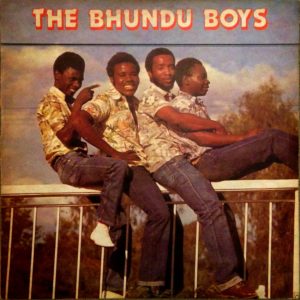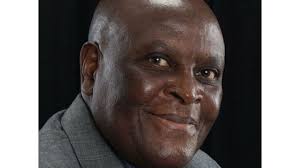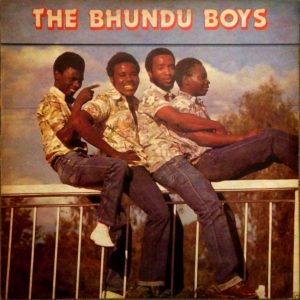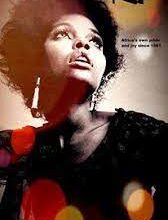HOW CRISPEN MASUKA FACILITATED THE RISE OF THE BOYS WHO LOST THE PLOT IN THE BHUNDU

HOW CRISPEN MASUKA FACILITATED THE RISE OF THE BOYS WHO LOST THE PLOT IN THE BHUNDU


By Kamangeni Phiri 19/2/2023
IT was a beautiful story of sheer hard work, determination, originality, love and unity whose plot got twisted along the way when fame and greedy came in.
The story was authored in Highfield, Harare by a musical ensemble composed of ghetto youths, developed in neighbouring Mufakose suburb before being taken to the city’s night clubs and leisure spots for fans to sample.
They called themselves the Bhundu Boys, a name they deliberately picked to celebrate the role played by war veterans in liberating the country from its erstwhile colonisers.
Zimbabwe nurtured and fell in love with the group before unleashing them to Europe and the US where they graced some of the world’s best entertainment arenas.
At the apex of their game, the band received rave reviews from some of the world’s top music critics and journalists of the time.
“The Bhundu Boys remain the single most natural, effortless, catchy pop band I’ve ever heard,” remarked Andrew Kershaw, a former BBC radio broadcaster in the UK when he first sampled the group’s works in the late 80s on his radio show.
His colleague, John Peel, also a DJ, was equally entranced by the Bhundu Boys music: he broke down in tears the first time he saw the band perform live.
Then came the abrupt end – a sad one.
In a nutshell, the Bhundu Boys’ story is one of success and tragedy.
Their genesis can be traced back to 1980 in the sprawling high density suburb of Highfield in Zimbabwe’s capital. Rise Kagona lead vocalist and band leader brought together a group of five musically talented youths from the suburb. They had nothing tangible to their name; not even a guitar or a set of drums.
Nothing, save for two things: ambition and talent.
The band used to conduct rehearsals using instruments belonging to nightclubs or bars where they would be performing.
In their formative years they tried a couple of names, first they called themselves The King Crops Hippies before changing to The Wild Dragons.
Biggie Tembo aka Mhosva Marasha, the man who became known as the frontman of the Bhundu Boys and their top lead vocalist, was not in the picture then.
One day, Tembo was just passing by a bar in Machipisa, Highfield where Rise Kagona and his band were playing. The band’s drummer had not turned up for rehearsals and Rise who knew Biggie asked him to join them for the day. Tembo was a gifted artiste with great vocal skills and guitar playing prowess. He immediately impressed the other band members and before long Biggie had taken centre stage in the band.
The Bhundu Boys line up at that time comprised Tembo (vocals, rhythm guitar), Kagona (lead guitar, vocals), David Mankaba (bass, vocals), Shakespeare Kangwena (keyboard, vocals) and Kenny Chitsvatsva (drums, vocals).
Their breakthrough came from an unexpected angle – Harare City Council’s youth and recreational services department. The department had a music enthusiast, the late Crispen Masuka, who was employed as a Youth Recreational Official. He played a key role in launching the Bhundu Boys to stardom.
Masuka, who had a passion for grooming and shaping youths’ talent in the early 1980s, spotted the potential in Bhundu Boys and hatched a plan to assist them indirectly.
He convinced his bosses in the City Youth Services department to buy some musical instruments for Area E Youth Club in Mufakose.
The boys started frequenting Mufakose’s Area E Club on a regular basis to practice playing music and deepen their knowledge in music.
Once they became experts, Masuka advised them to look for places where they could be engaged as a group.
They eventually secured a place at a night club in Chitungwiza in the early 80s. Like other contemporary bands, they kick-started their career by playing cover versions of western and American music at local beerhalls and community halls.
The band quickly became a beloved favorite among their local fans who appreciated their Jit sound, which was a unique fusion of African rhythms tinged with a bit of western pop music.
Soon, they were dominating national radio music charts and making appearances on television.
The group’s early hits that included Zvamauya Tongai Zimbabwe, Pamusoroi Komuredhi, and Makorokoto were received very well and shared air play with liberation war songs.
Jit, the genre that gave the group world fame, was used in its raw form to entertain fighters and villagers at pungwes (all night political vigil) during the liberation war. The raw version of jit comprises just drums and rattles (hosho).
It became evident the musical ensemble was pushing a narrative that rode on the euphoria of the newly born nation when the group chose April 1980 to official announce their existence as a band. It was the same month and year Zimbabwe achieved her independence.
Their claim to fame is anchored on mega hits like Simbimbino, Babamunini Francis, Tsvimbo Dzemoto, Jekesa and Chitima Kwe, among many others.
The group was already a local phenomenon by the time they were discovered by erstwhile music producer and engineer, Steve Roskilly, who produced and recorded The Bhundu Boys’ early works at his Shed Studio in Harare. The group’s debut single, Hatisitose was released in 1981 and it topped local charts for three consecutive months. They continued to dominate charts in the following years with more national number one hits in Babamunini Francis, Wenhamo Haaneti and Ndimboze.
It wasn’t long before the Bhundu Boys’ jit music attracted promoters from the United Kingdom.
Europe and the world were bowled over by the Zimbabwean outfit’s fast-paced and danceable beat.
Credit for the band’s rise to international fame should be given to two Britons, Owen Elias and Douglas Veitch, also known as Champion Doug, who travelled all the way to Zimbabwe from London in the mid 80s in search of artists to sign for their Discafrique label. They were impressed by their musical performances and ended up organising their maiden trip to London.
The group became so popular that at one point they released a series of number one hits, even outselling Michael Jackson with the song ‘Hatisitose.’ The song stayed at the top for 12 weeks.
Veteran DJ Andrew Kershaw told The Guardian in an interview that the Bhundu Boys were able to conquer the world because “They had great tunes, musicianship and a pop sensibility.”
“They had the personality; and they had the communication skills – few of the other bands actually spoke much English to start with, but the Bhundus could. And they were willing to work. They came from a tradition of very, very hard-working Zimbabwean musicians,” he said
The Bhundu Boys debut album, Shabini, did so well locally and overseas, prompting Owen and Dougie to fly to Harare in search of the group.
But fame and fortune came at a price – with their newfound wealth came reckless spending and jealous among the band members. What was once a tight-knit group of friends slowly turned into something far worse as the boys fought over money, power, and control. Eventually Kagona kicked Tembo out of the group.
Here was a group of talented musicians who at the height of their fame in August, 1987, played before a fully packed Wembley stadium in England but were left with nothing to show for it. They featured on that occasion as a supporting act to a then young Madonna, the self-acclaimed queen of pop. The iconic “Holiday” hit maker, who was one of the biggest selling and performing artist at that time, had asked the Bhundu Boys to be her supporting act for her three night shows dubbed “Who’s That Girl” Tour concert.
A record 216 000 music fans that turned up for the three-day concert were wowed by the Zimbabwean group. They were lauded by celebrated stars like Eric Clapton, Elvis Costello and Madonna. The jit band also shared the stage with legendary country musician, Don Williams. The band played in North America, Australia and Hong Kong while being chauffer driven in limousines.
But behind the scenes, the band was being exploited by greedy record companies that wanted to make quick money off their music without offering them any real support or consistent promotion. The Bhundu Boys could never get the recognition or financial rewards they deserved for their music, and eventually it all fell apart.
The five-member boy band lost it when fame took them to the glittering streets of Europe where they began to act wild. Bhundu means an uninhabited wild region that is far from towns. In African parlance, it can also mean being anyway away from home, as was the case when the Bhundu Boys relocated to UK.
When in the wilderness, people tend to become wild.
Their first album released under WEA in 1988 flopped as the group dropped a “winning formula” of recording in their native Shona language and started singing in English.
The Bhundu Boys, now composed of four members, continued to work hard and holding shows despite their lessening popularity. Tembo, on the other hand, tried to go solo but it proved difficult. He tried to rejoin the group but Kagona blocked him. Tembo was found hanging in a suspected case of suicide in 1995.
Without the vocal prowess of Tembo it became increasingly difficult for the Bhundu Boys to lure fans to their shows. The group finally disbanded in the early 2000s.
Sadly, three of the members passed away from AIDS related illnesses. Bassist David Mankaba died in 1991, his replacement Shepherd Munyama died in 1992 and Shakespeare Kangwena died in 1993. Only Kagona and Kenny Chitsvatsva are still alive and are based in Scotland and England respectively.
Two lessons learnt from the Bhundu Boys’ Story: You don’t change a winning formula and there is power in unity.


